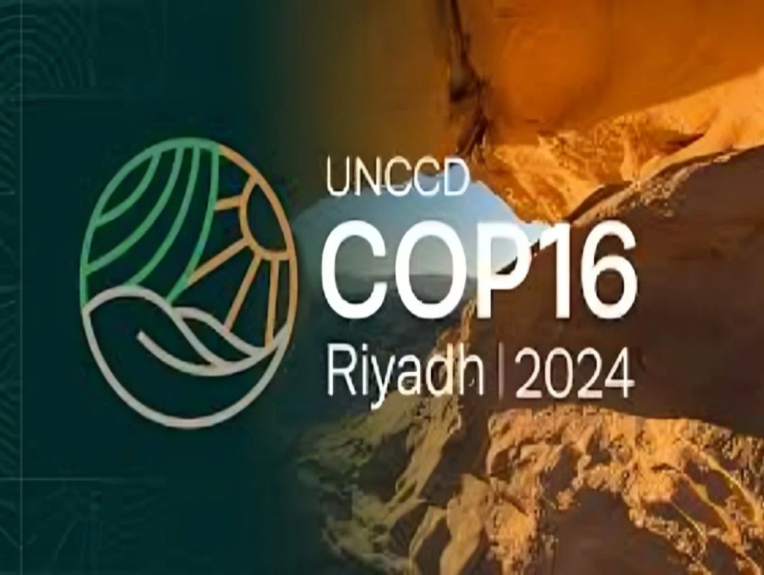India Showcases Aravalli Green Wall at COP16
Why in the news?
India presents the Aravalli Green Wall Project at COP16 in Riyadh, a major initiative aimed at restoring 1.15 million hectares of degraded land. The event highlights India’s leadership in combating desertification and promoting sustainable land management globally.
About COP16 Conference and India’s Participation:
- The 16th Conference of Parties (COP16) for the United Nations Convention to Combat Desertification (UNCCD) opens today in Riyadh, Saudi Arabia, marking the first time the conference is hosted in West Asia.
- India, represented by Environment Minister Bhupender Yadav and Haryana Chief Minister Nayab Singh Saini, joins delegates from 197 countries.
- The conference celebrates the 30th anniversary of UNCCD and runs until December 13, serving as a global platform for discussions on sustainable land management.
Aravalli Green Wall Project Presentation:
- India will present the Aravalli Green Wall Project (AGWP) on December 2 at the IUCN Pavilion, highlighting the restoration of 1.15 million hectares of degraded land in northwestern India across four states.
- The project aims to combat desertification, land degradation, and drought by integrating indigenous species afforestation, biodiversity conservation, and advanced water management strategies.
- It uses modern GIS tools, Nature-Based Solutions, and emphasizes community involvement and cultural preservation in the restoration process.
Key Highlights of COP16:
- Theme: “Our Land and Our Future” – Focus on land restoration and resilience-building for sustainable development and climate action.
- Historic Venue: Hosted in Saudi Arabia, emphasizing the urgency of addressing desertification and drought.
- Largest UN Land Conference: 197 global parties participating.
- Dual Approach:
- Negotiation Track: Political declarations and COP decisions.
- Action Agenda: Voluntary commitments, thematic dialogues, and partnerships.
Key Objectives:
- Accelerate land restoration for a land-degradation-neutral world by 2030.
- Build resilience to droughts, dust storms, and land challenges.
- Restore soil health, promote land rights, and create sustainable livelihoods.
- Unlock economic opportunities through land restoration.
- Riyadh Action Agenda: A flagship outcome to scale up land conservation, restoration, and drought resilience.
About Kunming-Montreal Global Biodiversity Framework (KMGBF):
- Purpose: Halt and reverse biodiversity loss by 2030.
- Goals: Restore 30% of degraded ecosystems (terrestrial, inland, marine) by 2030.
- Long-Term Vision: Commit to living in harmony with nature by 2050.
- Context: India’s NBSAP aligns with global biodiversity targets.
Sources Referred:
PIB, The Hindu, Indian Express, Hindustan Times




